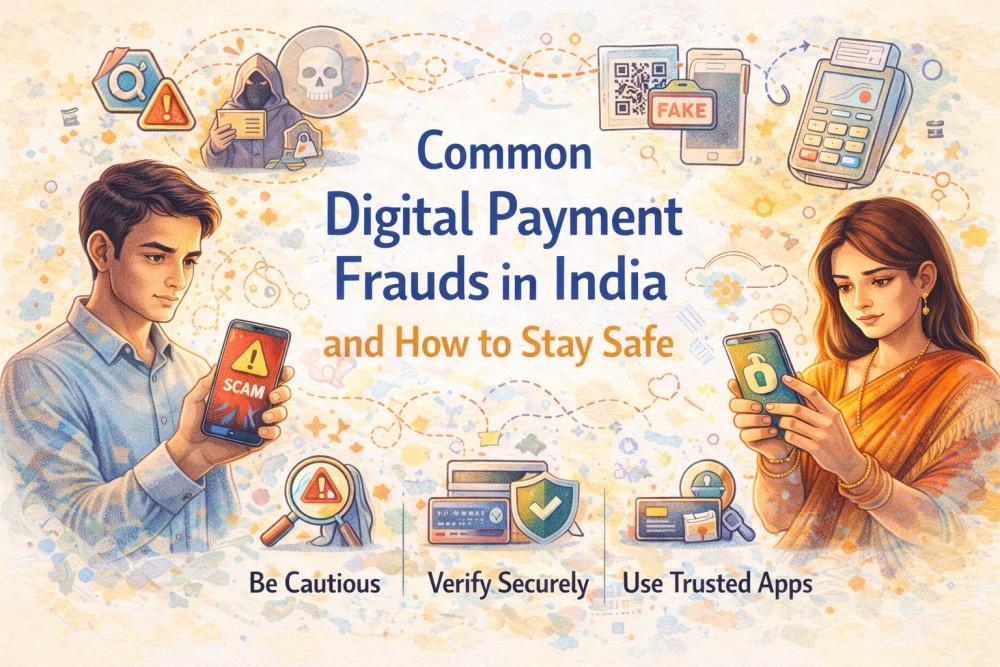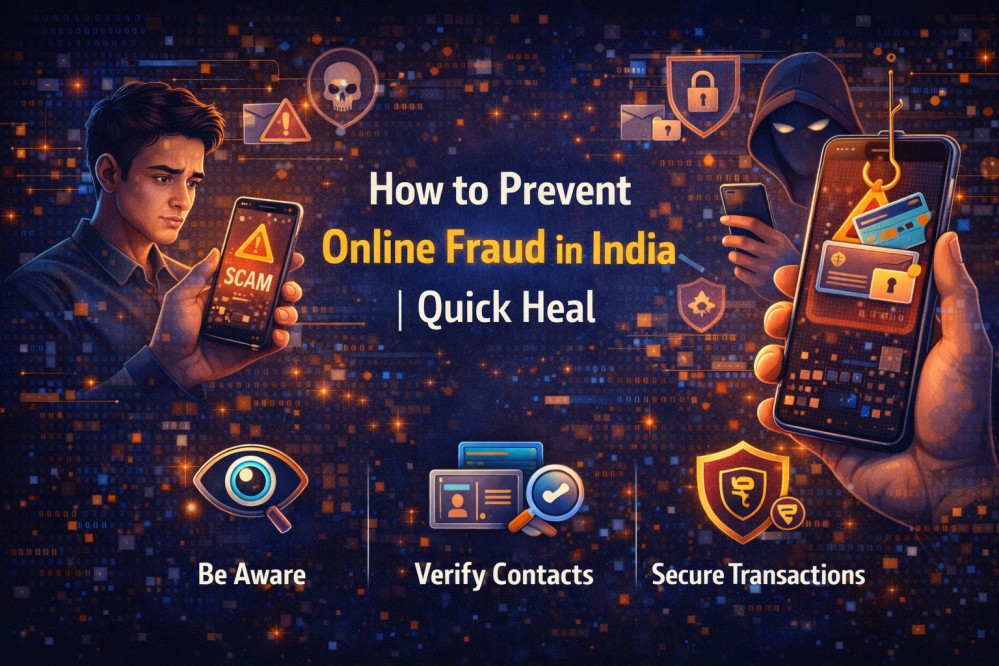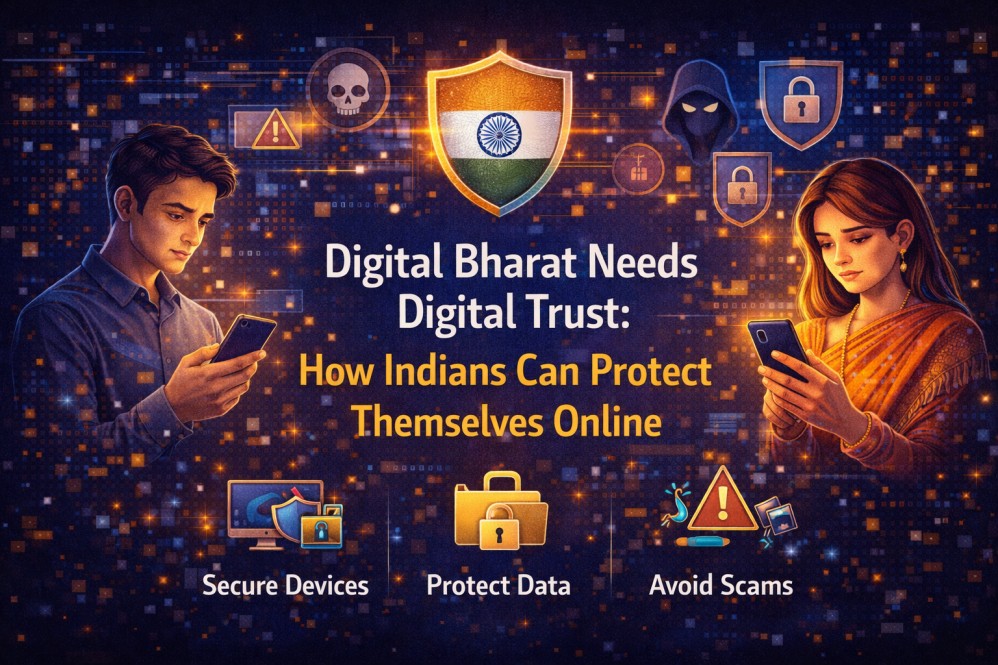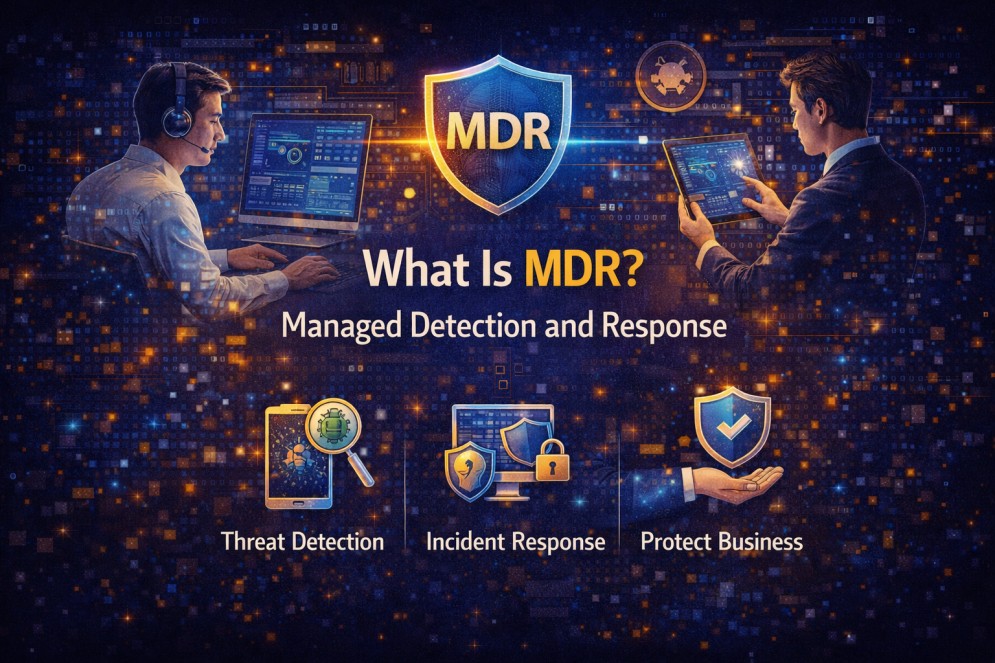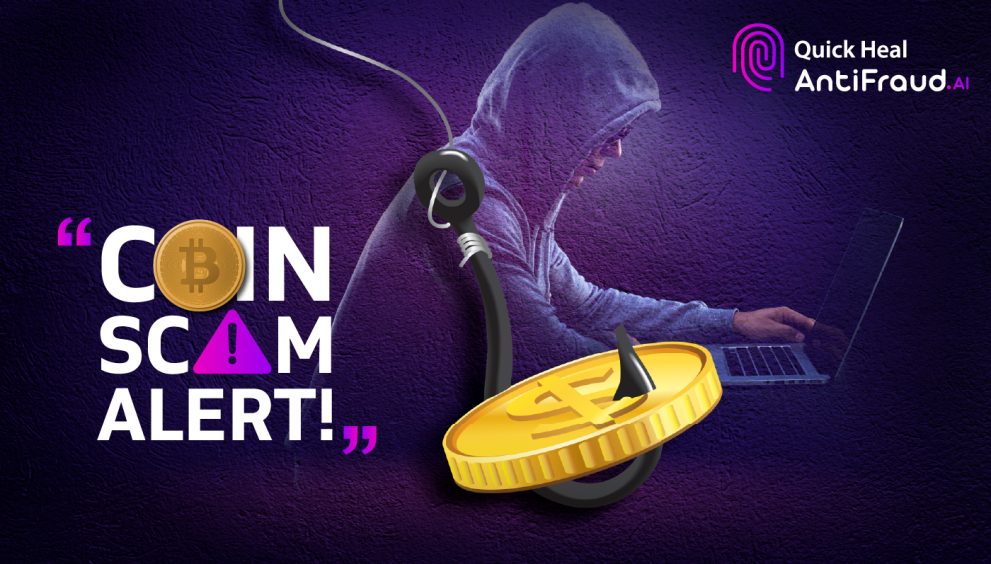
26
Sep
Sep

Coin Sale Scam: How to Spot Fake Crypto Offers
-
Quick Heal / 5 months
- September 26, 2025
- 0
A coin sale scam is related to cryptocurrency and refers to fraud schemes where scammers trick individuals into investing in fake or deceptive coin/token offerings. These scams typically emerge during Initial Coin Offerings (ICOs), token presales, or new crypto project launches.
What is a Coin Sale Scam?
A coin sale scam is when fraudsters pretend to launch or promote a new cryptocurrency token or coin, offering it for sale before it’s listed on major exchanges. Their goal is to collect money (in crypto or fiat) from investors and disappear or manipulate them into pumping a worthless token.
Common Types of Coin Sale Scams:
- Fake ICOs (Initial Coin Offerings)
- A fake team creates a convincing website, whitepaper, roadmap, and social media presence.
- They promise revolutionary tech, huge returns, or celebrity endorsements.
- Users are asked to send ETH, BTC, or other crypto to a wallet address in exchange for the new token.
- Once they collect enough funds, the team vanishes.
- Pump-and-Dump Schemes
- Scammers promote a coin to artificially inflate the price.
- They use fake news, influencers, or bots to hype the project.
- Early insiders sell (dump) their tokens when the price peaks.
- Price crashes, leaving late investors with worthless coins.
- Rug Pulls
Founders launch a real token with a working contract on platforms like Uniswap or PancakeSwap.
- They add liquidity and allow trading.
- After attracting enough liquidity and investors, the team removes the liquidity and disappears.
- Impersonation Scams (Fake Airdrops & Presales)
- Scammers clone popular crypto projects and announce fake airdrops or token presales.
- Victims are lured into sending crypto or connecting their wallets to phishing sites.
- Their funds or wallet access get stolen.
The Real Cost of Falling for Fake ICOs:
- Total Loss of Funds: Victims often lose their entire investment. Scammers usually disappear with the money before the token/project is even launched.
- No Legal Recourse: Since many scams are international, anonymous, or operate in unregulated markets, recovering lost funds is extremely difficult.
- Hidden Fees or Draining Wallets: Some scams involve smart contracts that allow the scammer to drain wallets over time, not just at the point of sale.
Precautions for Safe Crypto Investing:
- Do not click on any links received through messages or any other social media platforms as they may be intentionally or inadvertently pointing to malicious sites.
- Verify the sender: Be cautious of messages from unknown numbers or suspicious senders.
- Verify the Team: Look up founders on LinkedIn, search their history, and check for media appearances or past projects.
- Don’t Connect Wallets to Unverified Sites: Many scams trick users into signing malicious transactions.
- Never Share OTPs or Personal Details.
- Always verify before making payments.
- Beware of messages from unknown profiles.
- Don’t open unexpected attachments or images, especially from unknown sources.
- Download applications only from trusted sources like the Google Play Store.
How Quick Heal Antifraud.AI protects you
- One should have Antifraud.AI installed on their devices. It always provides pop-ups and alert messages when users click on suspicious links or install any suspicious application.
- It always keeps users updated when the screen of his/her mobile is shared and never lets them open any finance-related applications during screen sharing.
- It also alerts users regarding fraud calls or when their calls are being redirected.
- It helps users to avoid QR code scams.
- It alerts users about banking fraud and secures all online transactions from fraud.

